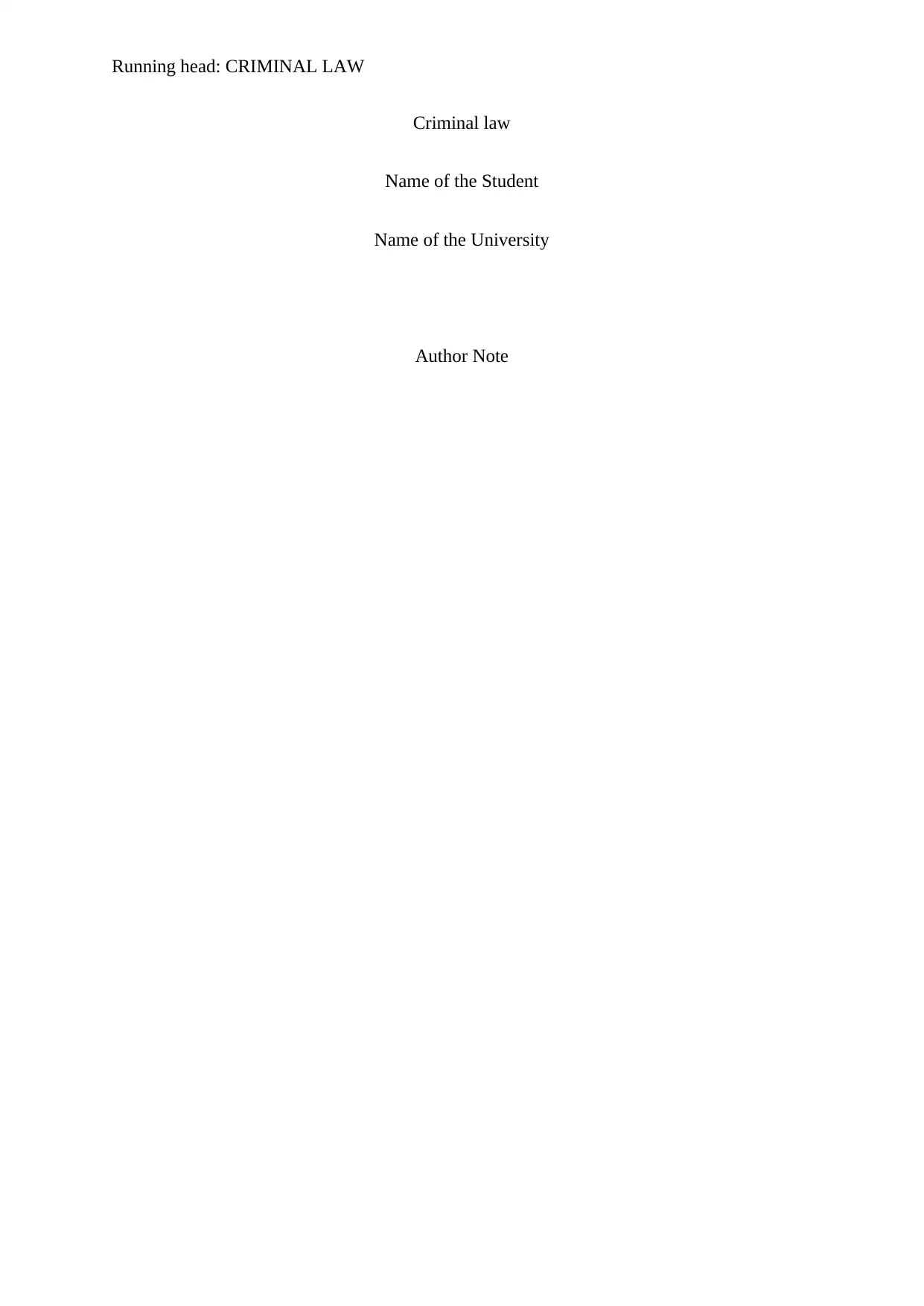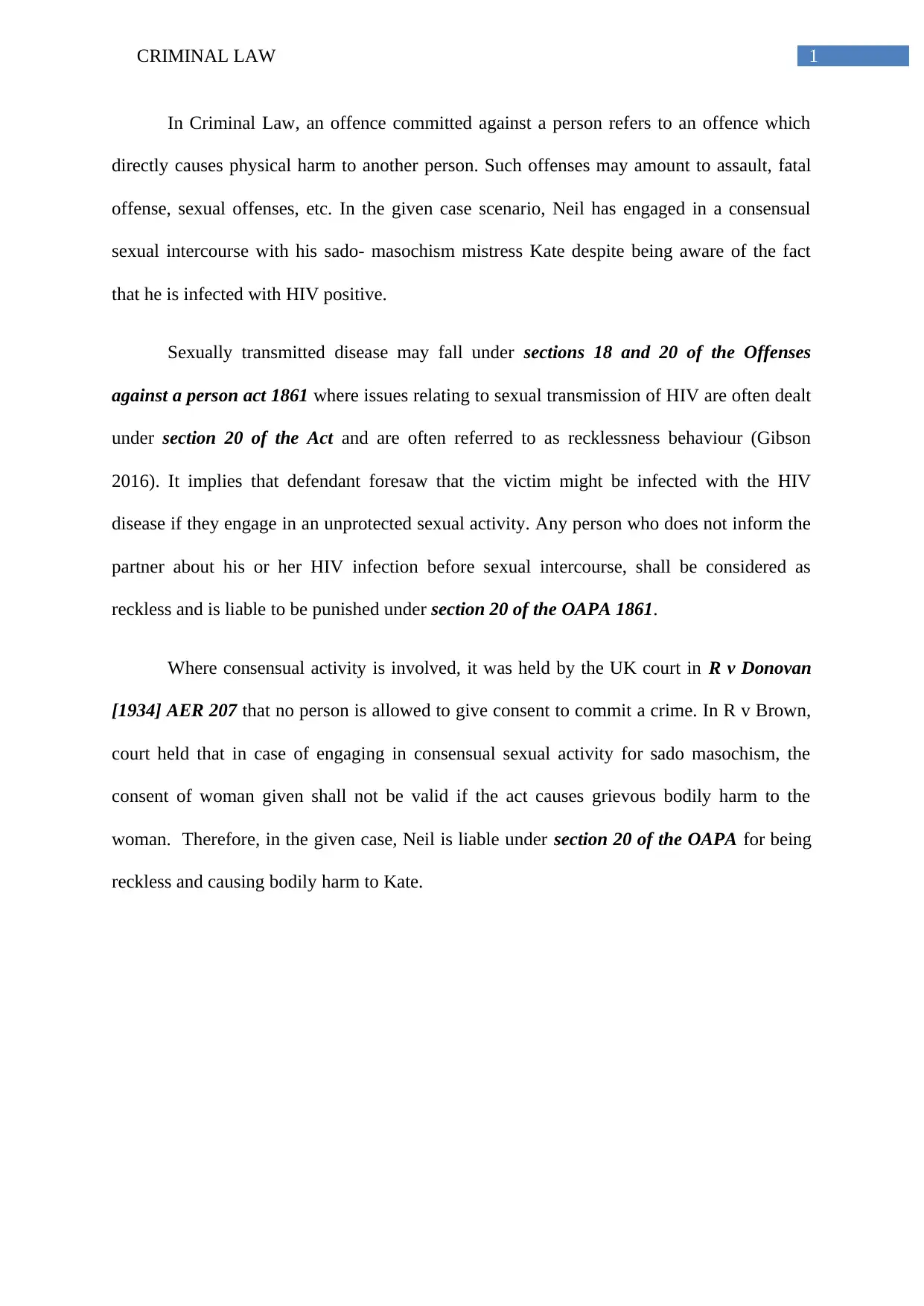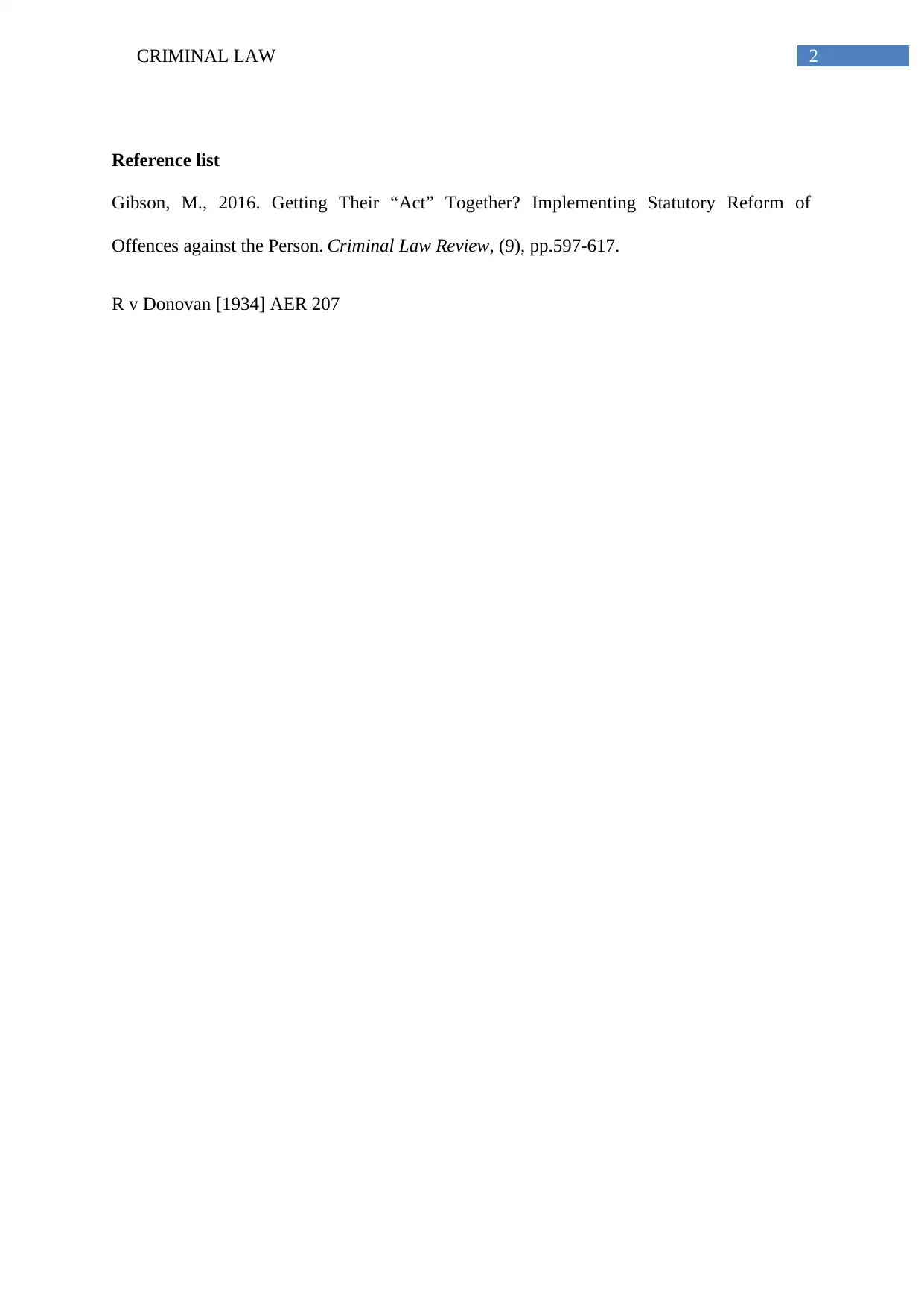Criminal Law: Case Study on the Offenses Against the Person Act (OAPA)
VerifiedAdded on 2022/08/03
|3
|344
|17
Case Study
AI Summary
This case study examines a criminal law scenario involving a person infected with HIV engaging in unprotected sexual intercourse. The analysis focuses on the application of the Offenses Against the Person Act 1861 (OAPA), particularly sections 18 and 20. The case considers the concept of recklessness, where the defendant is aware of the risk of transmitting HIV but proceeds with the act. It references the legal precedents of R v. Donovan and R v. Brown to address the issue of consent in cases involving sexual activity and potential harm. The conclusion suggests that the defendant could be liable under section 20 of the OAPA for causing bodily harm due to reckless behavior. The assignment provides an overview of the legal framework and its implications in the context of HIV transmission and sexual offenses, with a focus on the legal precedents and relevant legislation.
1 out of 3





![[object Object]](/_next/static/media/star-bottom.7253800d.svg)